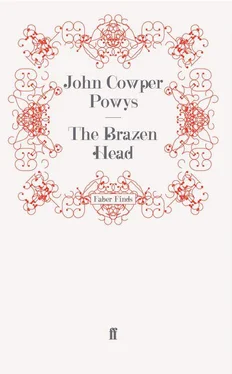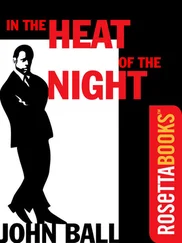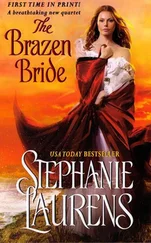He kept sitting down on his luxurious bed and then walking again down the passage. Had there been any luckless prisoner chained in the cell at the end of that passage, the rustle of that grey robe would have sounded like a new kind of wind from the limbo-cradle of Chaos.
Not for a moment did it enter the mind of Bonaventura that God had forsaken him. What he really felt, if the truth must be told, was that it was a shame and a disgrace that he, the recognized chief saint of all the saints on earth, should have, as his all-powerful and omnipotent deity, a deity who at an important crisis like this was not alive to the necessity of impressing these absurd and childish sons of Belial with the spiritual advantage they were bound to gain from associating with so famous a saint.
Yes, if the actual truth has to be told, it was with real irritation against his Creator that Bonaventura hitched up his grey robe, made the face he always made when he was undertaking something that required a real effort of courage — that is to say, sucked his lower lip into his mouth and tried hard to rumple and fold and curl his curiously malleable lips over his teeth, till these latter resembled broken shells pinched tight within the squeezed-up remnants of a mutilated jelly-fish, and boldly began to descend the narrow winding stone steps that led to the lower stories of the building.
The only balustrade to support a person descending these winding stairs was a ship’s rope fastened to the wall by large bronze rings. Instead of the usual narrow arrow-slits all the way down in the massive outer wall of this descent, there was a foot-wide barred window on every landing, and through these windows came not only the full force of the wind but just now a most curious evening light, that struck the consciousness of this continental traveller as the very incarnation of the wailing of the wind.
It was a wet white light, and it was a white light that had a way of blurring and even of deforming and disfiguring the outlines of the objects it surrounded. Our visitor after a quick glance at the dark oaken doors, which on every landing — and he passed three in his descent — faced these windows, paused for a while on each landing to stare out between the rusty window-bars.
There was something about the white light, as it lifted every object the man looked at out of its own airy ocean and presented it to his vision, as if it were particularly anxious that he should fully take in how it was isolated in its individual identity from all the other objects, each of which, if he would only continue staring through those rusty bars, should in their proper sequence be presented to his attention.
It was from the window of the last of these small landings that he caught sight of what was obviously an enormous oak-tree, by the side of which was standing a large white lamb. Both the tree and the creature by its side were presented to the saintly traveller as if they had been mystical symbols, divided from all other visible objects in this white thick encircling sea of light.
The branches of the oak-tree were creaking in this unusual wind in a peculiarly personal manner, as if they were chanting the syllables of an immemorial incantation that the tree had learnt from the low mound on which it grew, and that the mound had learnt from some unknown angelic power that had been hovering round when that horrible devilish attack had been made upon the mass of formless matter out of which the world arose.
The oak-tree was now trying to persuade the troubled creature at its side to accept the creaking and husky chant of its branches as the true oracular response to such agitated bleating on this wild night. The pleasure which Bonaventura derived from contemplating this ancient tree, and hearing its liturgical chant to its troubled year-old companion, was considerably interfered with by the annoyance he felt at God’s behaviour.
Yes, there was something that scraped and scratched his nerves in the petulant irritation he felt with God for letting this wind disturb everything. It is true that something in him responded to the storm. The creaking branches of that incredibly aged oak, borne on this wild wind that seemed to be carrying some desperate message to every ghost in Britain, did certainly — let us be fair to the man — have its effect on his Italian sensibility. But all the romantic emotion Bonaventura derived from it was spoilt by something vexing, fretting, chafing, ruffling, that came with the thought that God wasn’t protecting his partner in sanctity with the whole-hearted consideration which that partner’s life-long devotion deserved.
And yet, in spite of what he regarded as justifiable annoyance with God, Bonaventura couldn’t resist pressing his head against those rusty bars; and, like many other watchers from stone towers at that epoch — like young Lil-Umbra, for instance, as she watched, not many days ago, the encounter between Ghosta and Lilith — he was rewarded for his instinctive curiosity by a very unexpected event.
This was indeed nothing less than the appearance beside that oak-tree of none other than the bearded Baron Boncor of Cone, mounted on his war-horse, Basileus, and still writhing in pain from Maldung’s arrow stuck fast in his shoulder.
Bonaventura was very rarely driven to action by more than one strong emotion at the same time; and it would have been extremely unlike him to do anything but remain absolutely passive, when the instinct to cry out a warning to the rulers of Lost Towers strove in his breast with an instinct to do something to get that arrow out of Boncor’s shoulder. For to do Bonaventura justice, there was not a speck or grain of sadism in him — that is to say, of delight in cruelty purely for its own sake.
What he would really have liked to do, secretly, quietly, unheard of by the people of the place, was to slip out of the house, extract that arrow from the man’s shoulder, and command him, in the name of the Pope, to gallop off.
What he now saw however reduced both instinctive impulses to nothing; and he just watched, in petrified fascination. For the bearded man suddenly leapt from the saddle and advanced between the trunk of the oak and the bleating young motherless sheep with the obvious intention of caressing it, if it allowed him to approach. But above the creaking of the oak’s branches and the disconsolate moaning of the wind rose that lamb’s cry, as it bounded off with its heavy tail swinging between its legs.
But at that very second the movement forward of the bearded Lord of Cone brought the arrow in his shoulder close to the mouth of his war-horse, who promptly, quietly, neatly and expeditiously seized it with his teeth, and plucking it forth with one quick backward jerk of his head, bit it in half and let it fall against the roots of the tree, from which position both its bloody point and its agitated feathers were whirled away on the wind towards the reeds of the swamp.
It was clear that the loss of blood following the arrow’s extraction left the genial Lord of Cone too weak to remount his saviour, for even with his arm round the animal’s neck when he tried to lead it away, he kept tottering so unsteadily that finally he evidently resolved to take very daring measures, for he lengthened the horse’s bridle by tying to it the long leather strap he was in the habit of using to tether him, so that he could eat grass or anything else he fancied while he was left alone, and proceeded to fasten these elongated reins round his own waist. Then shouting to the animal a brief and clear command in a familiar phrase well known to them both — a phrase that suggested hastening straight home to stable and straw and a well-filled bin — he folded his cloak about him and rolled over on his stomach with both arms outspread and his head thrown back.
Читать дальше











